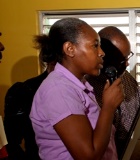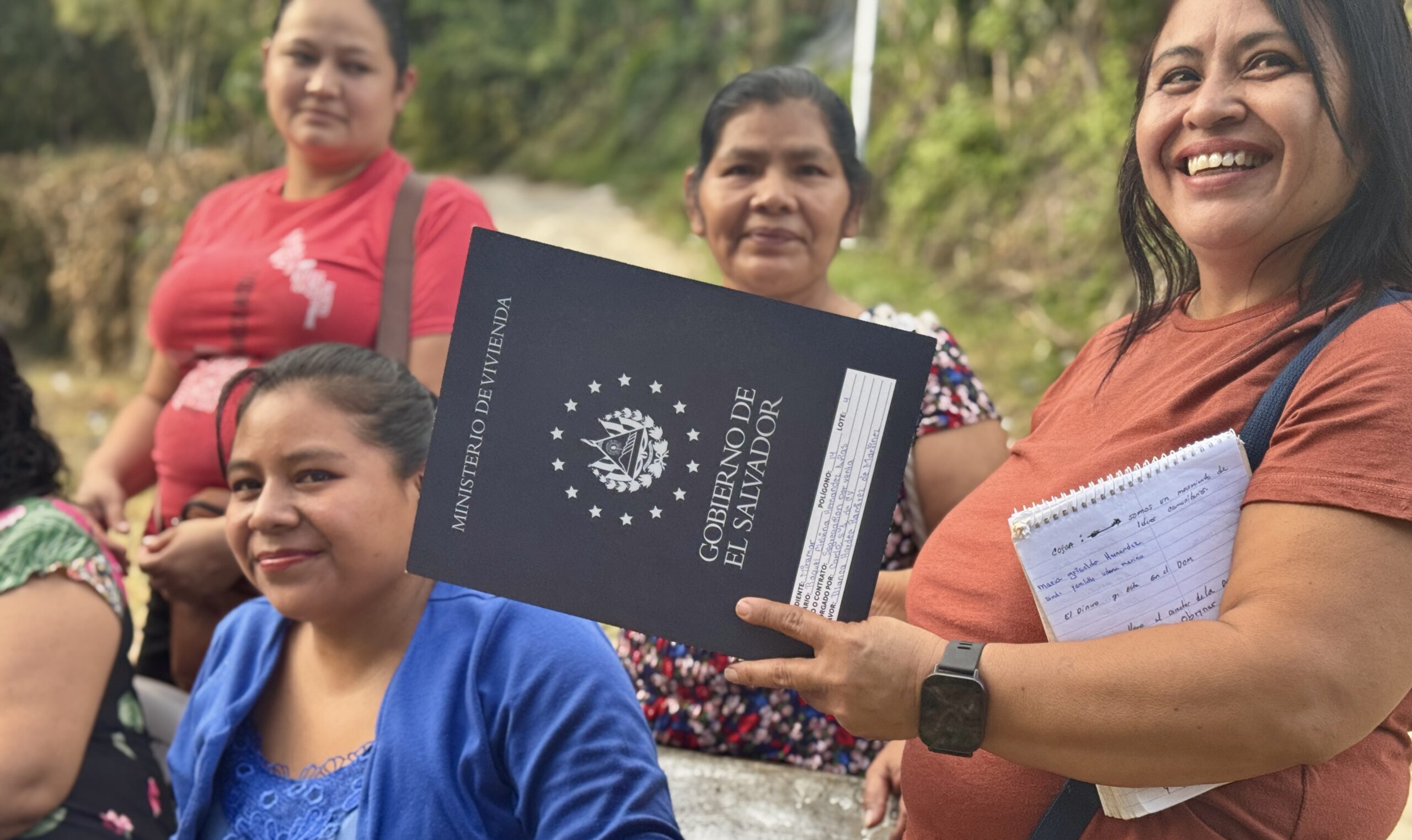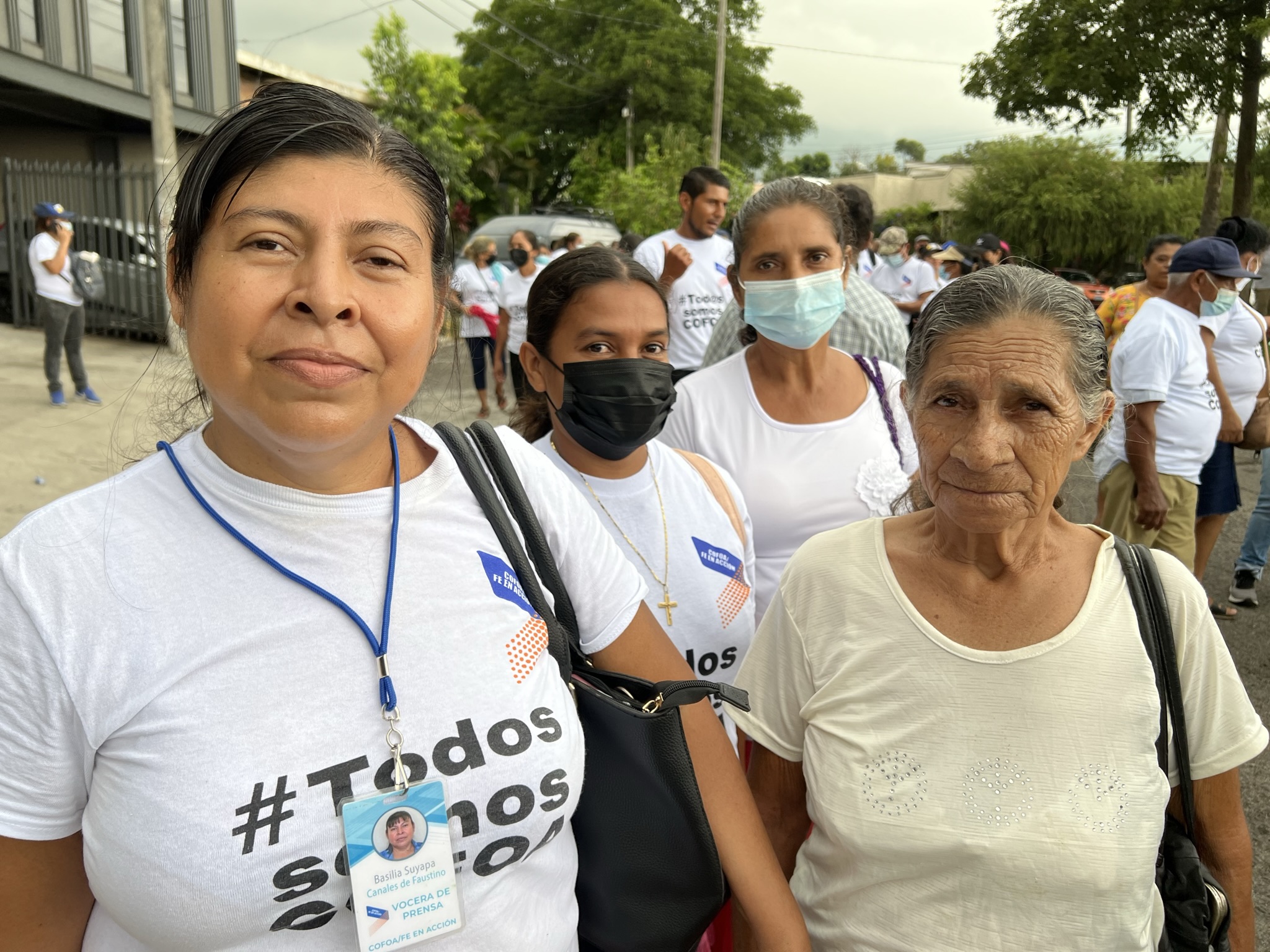Zacatecoluca, El Salvador — Salvadoran Housing Minister Michelle Sol announced that the government has regularized the land titles of 61,333 families and is prepared to move forward with…
Marie St-Fluer’s Leadership Changes Lives in Haiti
View a slide show of Marie’s work as and OPODNE leader
“The community feels that OPODNE is already making a difference in their life.” – Marie St-Fleur
High in the mountains of Northeast Haiti, Mombin Crochu is nearly inaccessible because roads into the village are frequently washed away by storms. Still, grassroots leaders’ organizing efforts are building a national reputation for their organization, The People’s Ecumenical Organization of the Northeast (OPODNE). Marie St-Fleur is the champion and key organizer-leader of OPODNE’s first effort in Mombin Crochu, providing space at her school for leaders to gather and setting a high standard for community dedication, integrity and accountability. Marie St-Fleur is Vice President of OPODNE and principal of the award winning Le lycée Fortuné Audate School in Mombin Crochu.
Government officials as far away as Port au Prince are taking notice, as are international aid organizations. The result is an infusion of hope and much needed resources and improvements for residents of this remote village.
For example, when recently elected Senator Jacques Sauveur Jean heard that the Ministry of Public Works was contracting to build a new road connecting Mombin Crochu to the Grand Savanne, he urged them to contract with OPODNE. While many groups submitted a bid, OPODNE was chosen to manage this work because of its reputation for integrity.
OPODNE staff are working with Mombin Crochu residents to build a local organizing committee, a team of leaders who conduct extensive outreach to people throughout the area to engage them in self-help projects they prioritize. Their work is paying off. For over two years, 50+ community leaders have met regularly, some walking four hours to attend the monthly meeting. The entire community organizes labor days to repair roads and plant trees. Through a collective, women take turns with child care and selling produce at the market.
When OPODNE leaders were granted the road construction project, they hired 88 people who formed 11 teams, with men and women participating equally. Crew leaders supervised the work, and photographers and recorders documented the effort and reported back to public officials and the community.
OPODNE crews not only completed the project on time, they did extra work, including clearing roads to the local cemetery and market. This project created temporary work and significant income for members in Mombin Crochu, and — as importantly — further enhanced OPODNE’s reputation, opening the door to contracts for similar projects in additional towns in the Northeast. Government officials are saying how impressed they are with OPODNE’s ability to organize people and achieve its goals. Mombin Crochu’s Mayor, Angelais Joseph, comments: “’This is the first time since I have been the mayor that an organization which is implementing a project in the community came to inform me about it first and then openly shared all the details with the community.”
This is the second major project based in Mombin Crochu. Late last year, the OPODNE organizing committee established a new partnership with the World Bank to launch a sorghum cooperative. Learning about OPODNE’s organizing, the World Bank decided to make an investment of $100,000 to develop the effort. OPODNE has formed a farmer cooperative and World Bank funds will be used by the coop to assemble land and buy the seed and equipment needed to plant, harvest, and process the sorghum crop. A brewery has committed to buy the crop at prices that guarantee a reasonable profit for the cooperative.
Leaders have already agreed to a formula to distribute profits to coop members and to provide technical support and improve community services.
New initiatives, such as the road project and farming coop, are critical to helping the community of Mombin Crochu become self-sufficient and to rebuilding the devastated agricultural economy in rural Haiti. “The population feels that OPODNE is already making a difference in their life. They were discouraged with farming because they could not sell their crops. The technical assistance they will receive from Agronomists and the opportunity to sell off their crops to the brewery make agriculture interesting again,” according to Mme Enance St Fleur, Vice President of OPODNE’s Board and Principal of the Mombin Crochu High School.
These contracts with government entities have been executed with OPODNE because of its proven track record of transparency, accountability, and performance. These values are reinforced in OPODNE’s leadership trainings and have caused the organization and its leaders to stand out in a country plagued by a culture and history of secrecy, corruption, and unaccountability.
OPODNE is determined to take a different path. As, OPODNE Director Florcie Tyrell says, “We are not waiting for others to solve our problems. Too many groups have come and trained people to expect charity. When they leave, there is nothing left. I would not participate in PICO if I didn’t believe that we will be different.”
The People’s Ecumenical Organization of the Northeast (OPODNE) is a community organizing initiative launched in 2013. In addition to the work in Mombin Crochu, OPODNE trained over 500 leaders and helped them form organizing committees committees in all 15 towns and villages in the Northeast Department.
With as little as $3000 in seed money, OPODNE forms and supports five functioning economic development cooperatives — a peanut cooperative in Capotille, a chicken cooperative in Grand Bassin, a fishing cooperative in Phaeton, a pepper cooperative in Mont Organise, and the sorghum cooperative in Mombin Crochu. Leaders support public education and youth enrichment by establishing computer training centers, youth summer sporting and social events, and teacher training programs. OPODNE leaders are developing plans for new enterprises in several towns, including a latrine-building project in Caracol, a seamstress-training program in Vallieres, a restaurant in Terrier Rouge, and a house-building project in Paulette.
OPODNE is bringing the organizing model developed by the U.S.-based PICO Network to Catholic parishes and other congregations in the Northeast. This work is an expansion of international programs in Central America and Rwanda.



